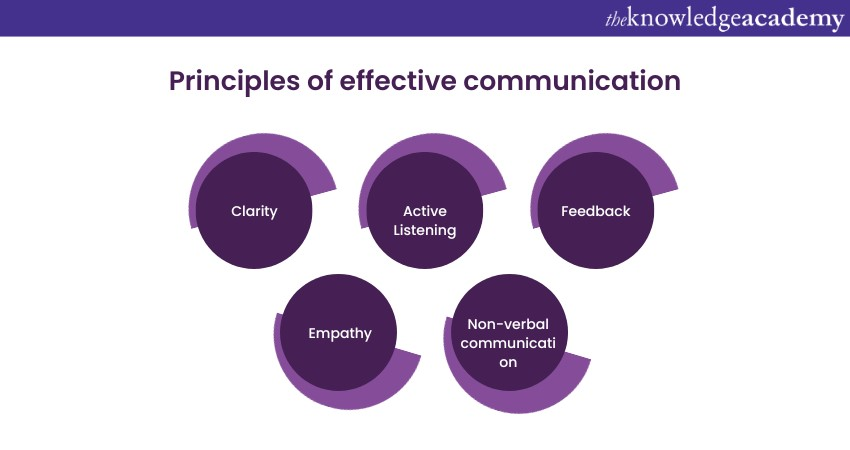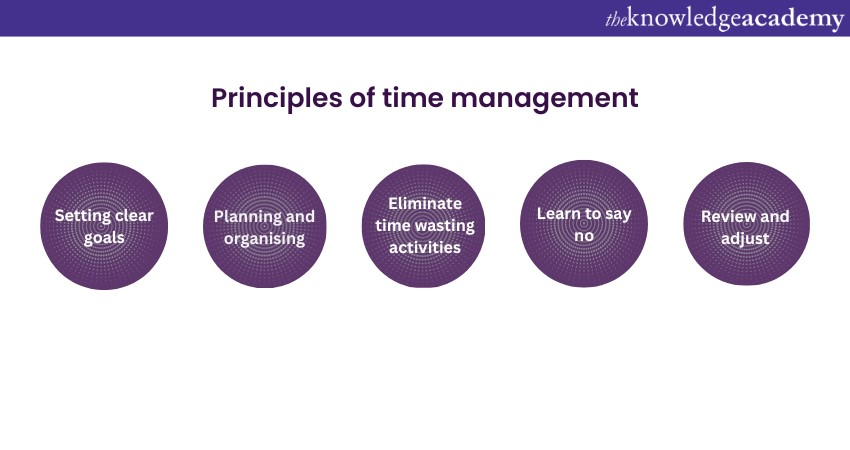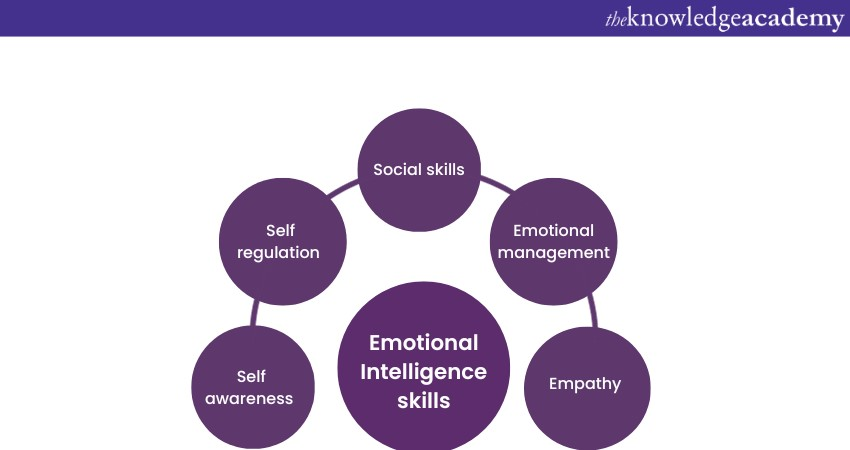We may not have the course you’re looking for. If you enquire or give us a call on 0800 446148 and speak to our training experts, we may still be able to help with your training requirements.
Training Outcomes Within Your Budget!
We ensure quality, budget-alignment, and timely delivery by our expert instructors.

As organisations evolve, so do the expectations placed on employees. It's no longer sufficient to be merely competent; one must embody the Qualities of a Good Employee who not only meets but exceeds the standards of excellence. Possessing these Qualities can not only empower you to meet but surpass the expectations of a rapidly changing professional world. So, what are you waiting for? Read this blog to learn about the Qualities of a Good Employee and climb the professional ladder in today’s highly competitive job market.
Table of Contents
1) Qualities of a Good Employee
a) Reliability and consistency
b) Effective communication
c) Adaptability and flexibility
d) Problem-solving acumen
e) Team player mentality
f) Time management proficiency
g) Leadership potential
h) Empathy and emotional intelligence
i) Self-motivation
j) Attention to detail
k) Accountability and responsibility
2) Conclusion
Qualities of a Good Employee
The following are some of the Qualities of a Good Employee that every employee must possess to stand out of the crowd:
1) Reliability and consistency
Reliability and consistency are the cornerstone qualities that set exemplary employees apart in the workplace. These attributes encompass a steadfast commitment to fulfilling obligations, meeting deadlines, and delivering work of unwavering quality.
Reliable employees can be trusted implicitly. Their colleagues and superiors know they will honour their commitments, contributing to a harmonious work environment. The reliability of such employees lends a sense of stability to teams and projects. They become the go-to individuals for critical tasks and are often relied upon to steer projects to success.
Furthermore, the consistency aspect of this quality ensures that performance is not a one-time display of excellence but an ongoing standard. Consistent employees maintain their quality of work over time, instilling confidence in the team's ability to deliver outstanding results, project after project.
2) Effective communication

Effective communication encompasses the ability to articulate thoughts and ideas clearly, but it goes beyond that. An employee with effective communication skills not only conveys information but also ensures that the message is understood and well-received by the intended audience.
Such individuals actively listen to their colleagues and superiors, fostering an environment of open dialogue and understanding. They can ask pertinent questions, provide constructive feedback, and express their thoughts without ambiguity. This skill is invaluable in team collaborations, client interactions, and leadership roles.
Effective communicators adapt their style to suit different situations, ensuring their messages are impactful. They can convey complex ideas in an understandable manner, reducing the likelihood of misunderstandings and conflicts. As a result, they are often entrusted with critical responsibilities, given that their communication skills enhance teamwork and overall productivity.
3) Adaptability and flexibility
Adaptability and flexibility are indispensable qualities for a successful employee in today's dynamic work environment. These traits encompass the ability to adjust, evolve, and thrive amid constant changes and challenges. Adaptable employees exhibit a willingness to embrace new tasks and roles, irrespective of how unfamiliar or challenging they might be. They see change as an opportunity for growth rather than a hindrance. Such individuals excel in environments where innovation and change are the norm, and their ability to quickly pivot in response to unexpected developments is a considerable asset.
Flexibility extends beyond adaptability; it involves open-mindedness, the capacity to work with diverse teams, and the readiness to consider alternative approaches. Flexible employees are willing to modify their work styles to accommodate the needs of the team and the organisation as a whole. In essence, adaptability and flexibility are the basis for resilience and resourcefulness, enabling employees to navigate the complexities of modern workplaces and contribute effectively to their organisations.
4) Problem-solving acumen
Problem-solving acumen is a hallmark quality of effective employees, greatly impacting an organisation's productivity and overall success. Such individuals possess a unique ability to not only identify challenges but also proactively seek innovative solutions. They approach problems positively, viewing them as opportunities for growth rather than insurmountable obstacles.
Good problem solvers exhibit several key characteristics. They are adept at defining the issue clearly and breaking it into manageable components, facilitating more precise problem analysis. Their creativity and critical thinking allow them to explore unconventional avenues and devise solutions that might elude others.
Moreover, effective problem solvers are persistent and resilient in their pursuit of answers. They understand that setbacks are a natural part of the problem-solving process and use each as a valuable learning experience. This quality not only enhances their growth but also elevates the entire organisation, as innovative solutions drive progress and innovation.
Elevate your company's ethical standards with our Ethics in Workplace Training today!
5) Team player mentality
A team player mentality is a fundamental quality that distinguishes good employees. Those willing to collaborate and cooperate not only comprehend the intricacies of working within a team but also actively contribute to the group's objectives, promoting a harmonious and efficient work environment.
Effective team players demonstrate exceptional interpersonal skills, fostering positive colleague relationships. They are approachable, open to diverse perspectives, and readily offer assistance. This creates a supportive atmosphere where knowledge sharing and cooperation thrive, ultimately benefitting the organisation.
Moreover, team players are keenly aware of group dynamics and the importance of aligning individual efforts with collective goals. They actively engage in discussions, welcome feedback, and acknowledge the contributions of their peers. By doing so, they ensure that the team's performance consistently exceeds expectations, making them indispensable assets to any organisation.
6) Time management proficiency

Effective time management is a hallmark of a good employee. In today's fast-paced work environments, the ability to harness time efficiently can significantly impact an individual's productivity and the success of the team or organisation as a whole.
Proficient time managers possess a few key attributes. They excel in setting clear goals and priorities, ensuring that they allocate their time to tasks that matter most. Additionally, they have a keen understanding of their daily routines, allowing them to identify potential time-wasting activities and replace them with productive endeavours.
Furthermore, they are skilled at estimating the time required for specific tasks, preventing overcommitment and deadline pressure. This time-conscious approach not only enhances their own efficiency but also contributes to better project management within their teams. Finally, good time managers often use time management tools and techniques to further boost their productivity and maintain a healthy work-life balance.
7) Leadership potential
Leadership potential is a quality that transcends hierarchical titles and is highly coveted in the workplace. It signifies an individual's ability to inspire, influence, and guide others toward achieving common goals. While formal leadership roles are crucial, organisations value employees who exhibit leadership potential regardless of their job title.
A key aspect of leadership potential is the capacity to lead by example. Those with this trait display a strong work ethic, unwavering integrity, and a commitment to the organisation's mission. Their actions and attitudes serve as a source of inspiration for their peers, motivating them to excel.
Effective communication is another pivotal component of leadership potential. Those who can convey their ideas clearly and actively listen to others can build trust and foster cooperation among team members. They are skilled at resolving conflicts, providing constructive feedback, and promoting open dialogue.
Moreover, individuals with leadership potential are adept at strategic thinking. They can envision the big picture, set goals, and develop actionable plans to attain them. This quality encourages innovation, propels projects forward, and contributes to the organisation's success.
8) Empathy and emotional intelligence

Empathy helps build healthy relationships within the workplace. An empathetic employee can step into the shoes of their colleagues, understanding their feelings, concerns, and perspectives. This deep level of comprehension fosters trust, communication, and collaboration. Empathy helps defuse conflicts, enhance teamwork, and create a supportive environment where everyone's well-being is considered.
Emotional intelligence (EI) complements empathy by including a broader spectrum of skills, including self-awareness, self-regulation, motivation, and social skills. Employees with high EI can navigate the complexities of the workplace with finesse. They can manage stress effectively, communicate clearly, and exhibit a profound understanding of social dynamics.
Together, empathy and emotional intelligence create an atmosphere where individuals feel valued and understood. This, in turn, leads to improved morale, stronger teamwork, and higher productivity. Empathetic and emotionally intelligent employees not only excel in their roles but also contribute significantly to a positive organisational culture.
9) Self-motivation
Self-motivation is a pivotal quality of an effective employee, driving them to succeed and achieve their goals. It's an intrinsic force that propels individuals to take initiative, stay committed, and persist in facing challenges. Self-motivated employees are passionate about their work, and this passion serves as a wellspring of energy and dedication.
They have a clear sense of purpose and are capable of setting and pursuing their objectives independently. This quality not only benefits the individual but also inspires those around them. Co-workers and supervisors are drawn to self-motivated employees who exhibit a can-do attitude and an unwavering commitment to their tasks.
Self-motivation leads to increased productivity, as individuals with this quality require minimal external prodding to get the job done. They are driven by a desire to excel and continually seek opportunities for self-improvement. This leads to a higher quality of work, contributing significantly to the success and growth of the organisation. In essence, self-motivation is the engine that powers an employee's professional journey.
Learn the significance of having personal ethics in the workplace with our Personal Ethics Training – join now!
10) Attention to detail
Attention to detail is a hallmark of the quality of exceptional employees. It goes beyond the ability to complete tasks accurately; it encompasses a meticulous approach to work that permeates all aspects of their responsibilities.
Employees with a keen eye for detail ensure that every task they undertake is executed with precision and thoroughness. They review their work for errors, inconsistencies, and omissions, striving for perfection. This level of diligence not only results in error-free outcomes but also enhances the overall quality of work produced.
In many professions, especially those related to finance, healthcare, and engineering, meticulous attention to detail is non-negotiable. Even in creative fields, such as graphic design or content creation, it can be the difference between mediocrity and excellence.
Attention to detail is closely linked to problem-solving, as it involves the careful analysis of issues and the identification of solutions. It contributes significantly to efficiency, as fewer errors mean less time spent correcting mistakes. Individuals with this quality are often seen as trustworthy and reliable by their peers and superiors. Their commitment to precision instils confidence in their abilities.
11) Accountability and responsibility
Accountability is more than simply accepting ownership of tasks; it entails acknowledging the outcomes, whether positive or negative and being answerable for them. Responsible employees go beyond fulfilling their job descriptions; they take ownership of their role's impact on the organisation and its goals.
Accountable and responsible individuals proactively identify areas for improvement, admit to their mistakes, and actively seek solutions. Their actions lead to higher transparency within the workplace, as they are unafraid of the consequences of their decisions. By learning from their missteps and evolving, they contribute to an organisation's continuous growth.
In addition, accountable employees cultivate trust and reliability within their teams. They understand that their actions affect not only themselves but also their colleagues and the overall success of the organisation. This sense of responsibility drives them to meet and exceed expectations, fostering a culture of integrity and commitment in the workplace.
Conclusion
The Qualities of a Good Employee encompass a blend of skills and attributes that set them apart in the professional arena. From reliability to leadership potential, these qualities form the backbone of success. Cultivating these good employee skills can open doors to career growth and personal fulfilment.
Unlock your HR Potential with our expert HR Training – elevate your career today!
Frequently Asked Questions
Upcoming HR Resources – Learn about Human Resources Batches & Dates
Date
 Employee Engagement Training
Employee Engagement Training
Fri 3rd Jan 2025
Fri 28th Mar 2025
Fri 23rd May 2025
Fri 4th Jul 2025
Fri 5th Sep 2025
Fri 24th Oct 2025







 Top Rated Course
Top Rated Course



 If you wish to make any changes to your course, please
If you wish to make any changes to your course, please


